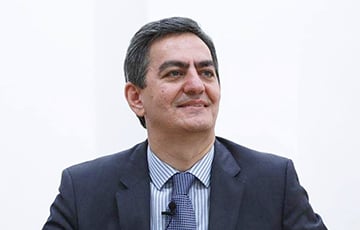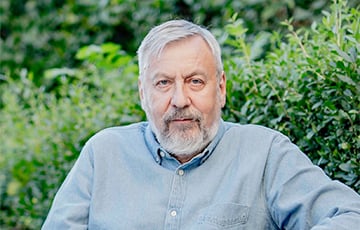"Breaking With Russia Is Not In Aliyev's Interests"
5- 3.07.2025, 14:27
- 7,990

Azerbaijani opposition leader told how the crisis between Baku and Moscow will develop.
Tensions between Azerbaijan and Russia have reached a new level. On June 27, mass detentions of Azerbaijanis took place in Yekaterinburg, and two brothers - Ziyaddin and Gusein Safarov - were killed as a result of lawlessness of law enforcers. After that, there is an unprecedented aggravation of relations between Russia and Azerbaijan.
Why did Ilham Aliyev respond only now? The Charter97.org website talked to Ali Kerimli, one of the leaders of the Azerbaijani opposition and the head of the Azerbaijani Popular Front party.
- The crisis in relations between Azerbaijan and Russia began back in December last year - with the incident when Russian air defense forces shot down an Azerbaijani plane in Russian airspace. There is no doubt that the plane flying from Baku to Grozny was shot down by the Russian military. Unfortunately, this crime, which claimed the lives of 38 people, was defiantly hushed up by the Russian side. Russia did not recognize its responsibility for the incident, and the perpetrators were never brought to justice. This reinforced the opinion in Azerbaijan that Russia perceives the country not as an equal partner or ally, but as a subordinate vassal state. Since then, relations between Baku and Moscow began to cool.
The bloody police operation carried out on June 27 in Yekaterinburg against the Azerbaijani diaspora brought the cooling in relations to the level of an open political crisis.
In other words, both the escalation of tensions in relations and the choice of the date - June 27 - were largely due to the Kremlin's decision. The Kremlin understood perfectly well that mass arrests of ethnic Azerbaijanis in Russia, torture and even the murder of two Azerbaijani businessmen could not go unanswered and would inevitably worsen relations with Baku.
The response of the Azerbaijani authorities to the unfair and humiliating behavior of the Russian side is related to the changed circumstances.
Azerbaijan has repeatedly faced injustice and neglect on the part of Russia. Thus, during the years of the Armenian-Azerbaijani conflict, Moscow transferred billions of dollars worth of weapons to Armenia. Moreover, Yerevan was provided with Iskander missiles, which were used to shell Azerbaijani territory. However, then President Ilham Aliyev and his government did not respond properly to these unfriendly, to put it mildly, actions of Russia, which, in my opinion, signaled to the Russian leadership that Azerbaijan could not be given due respect and could be treated from a position of strength.
Now the situation has changed not in Russia's favor. Its war of aggression against Ukraine has severely weakened its military, economic and political power. For more than three years Russia has been waging war, but it has not been able to occupy a single regional center of Ukraine (the city of Kherson, which was taken, also had to be abandoned). Russia has found itself under severe sanctions, in international isolation, and its economic and financial resources are dwindling. Moscow's geopolitical position has weakened considerably. In the current situation, Azerbaijan under Aliyev's leadership remains one of Russia's few allies - along with Lukashenko's regime in Belarus.
In addition, the liberation of Karabakh, the end of the war with Armenia, the withdrawal of Russian troops from Azerbaijan, the attempts of the Pashinyan government in Armenia to break out of Moscow's orbit of influence, as well as the categorical rejection of Russia's imperial policy by the majority of Azerbaijanis, have strengthened the confidence of the Azerbaijani authorities that this time Russia's aggressive actions can and must be answered.
Restoring Moscow's influence in Georgia also looks unrealistic. Although the rhetoric and domestic policies of the current Georgian government are increasingly converging with Russia's authoritarian practices, the Georgian people will never forgive the Kremlin for occupying 20% of their national territory. Under these circumstances, it is extremely difficult to imagine Georgia openly moving into the pro-Russian camp. Moreover, despite the setbacks of recent years, Georgia is still a candidate country for EU accession. Even the government, which is often accused of sympathizing with the Kremlin, does not give up this goal, but only postpones the deadline.
Therefore, it is the Aliyev regime that remains Russia's main stronghold in the South Caucasus.
A break with Russia is also not in the interests of Ilham Aliyev himself. First, there is the factor of millions of Azerbaijanis living in Russia. Secondly, despite the current contradictions, there is ideological affinity between Aliyev and Putin. Aliyev shows no desire to leave the "club of autocrats". Azerbaijan's domestic policy remains extremely repressive: the number of political prisoners exceeds 375, and fundamental rights and freedoms are not guaranteed. As in previous years, Ilham Aliyev and Vladimir Putin have similar positions on democracy and human rights. They remain allies in curbing the democratization of the South Caucasus and countering the spread of Western values and influence.
Aliyev is not interested in Russia's complete withdrawal from the region. He is likely to seek to restore a certain level of relations with the Kremlin in order to use the Russian factor as a counterweight to the efforts of the US and EU to increase their influence in the region.
- How might the conflict develop in the near future?
- Of course, the sides may still take a few aggressive steps to test which of them and to what extent they are ready to withstand tensions. However, in my opinion, neither Baku nor Moscow is interested in further escalation. In the short term, the status quo is likely to be maintained.











